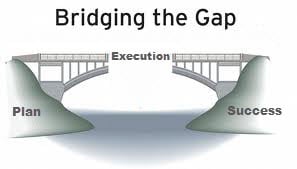Execution.
How often have you rolled out a new sales project that failed? Most projects fail because they lack a well-defined execution plan. Here is a story of a wise CEO who never lets this happen.
Meet ‘Yoda’
I met with a veteran CEO and his new sales leader recently. The CEO had been around the block a few times. He had CEO skills and had tremendous wisdom. He reminded me of Yoda from Star Wars. Short. Chubby. Bald. A leadership style full of wisdom.
‘Yoda’s’ new sales leader was proposing a new sales process project. The sales manager was nervous as he spoke. He hadn’t cleared the budget with Yoda yet.
Make your next sales project successful. Download a free version of the Project Execution Plan here.
He told Yoda how he could improve the win rates of the sales team. Shorten the time to close deals. Even get higher prices.
He would hire a company to spend 3 days training the team in Q3. This would get them ready for a big Q4. The project was going to cost $150,000.
The ‘Uh-oh’ Moment
After 10 minutes of enthusiastic presentation, Yoda interrupted. “I have a question,” he said. “How will you make sure this gets executed?”
The sales leader fell quiet. After a lengthy silence, he sheepishly asked “what do you mean, exactly?”
“I mean, I want to know how you will execute this. You’re asking me to invest $150K. We’ve spent money on projects before and nothing happened. Nobody did anything with them.
“Remember last year, we hired a company to do sales training? We spent $90K and pulled everyone out of the field for 3 days. They gave us tools, templates and playbooks. The never got used.
“The second everyone left the room, the materials were forgotten. Nobody spoke of them again. The training company disappeared. No follow up. No execution. No return on investment.
“How are you and your team going to make sure this doesn’t happen again?”
Silence.
Uh-oh!
Learning from Failure
Yoda knew better after last year’s failed project. He could tell his sales leader hadn’t thought about this. He knew he was missing the most critical project component: a Project Execution Plan.

It wasn’t the sales leader’s fault. It was his first big initiative. His heart was in the right place. When he was a sales director, he was an execution machine. He came by it naturally. His assumption was everyone would be like him.
“I remember last year,” the sales leader said. “2 weeks after we did the training, it was as if it never happened. I guess that was easy money for the training company.
“But, the team needs the knowledge. There is so much upside if we properly execute. I want to make sure we don’t repeat last year again.”
The Lesson
Yoda began to school the sales leader. “You’re focused on the big results,” he said. “I like that you’ve explored things like winning more. In less time. For more money. However, you’ve missed the most important part: How we will get from A to B. You need a plan for every day, week and month to execute. You need owners of activities. You’re the head of sales. You can’t do it all yourself. If you want to get outside business help, make sure they don’t just train. Make sure they execute.”
Yoda continued to explain how the details are where projects get executed. He pulled up a Project Execution Plan he’d used during a business strategy project.
“In order to properly execute, you need a plan. The plan has to have things like:
- Milestones
- Completion dates
- Ownership
- Risks
You can’t just hope it happens. You’ve done well with this in the past because it’s natural to you. However, your sales managers are inexperienced. You can’t hand this to them and expect it to work.”
You could actually see the sales leader begin to relax. He got it. He had anxiety about bringing this idea to Yoda and now he knew why. The training company he planned to hire never spoke about this. He didn’t have a plan to get it done.
Before adjourning the meeting, Yoda dropped one last pearl of wisdom. “Listen,” he said. “It’s like joining the gym. People pay the monthly fees and then don’t go work out. The money goes out and nothing happens. There are those who are motivated to do it themselves. Others hire a trainer. You know why? Because it forces them to execute on their vision.
“If you want to execute, you need to be the trainer for your people. You need to give them the roadmap for success down to the last detail. Otherwise, it’s just another sales project with no result.”




Ryan: this is a good story about a failed project. Making an assumption that others have an understanding about what to do carries its own risks, as you point out.
But a project can be flawlessly executed and still fail if it’s part of the wrong strategy. Similarly, it can fail if it’s part of the right strategy, but implemented the wrong way.
Effective project retrospectives are essential in order for companies to learn from mistakes and to build knowledge and know-how for future efforts. My company provides these services, specializing in managing risks for revenue-generation projects.
Here’s a high-level overview of what we examine:
1. Problem definition Was the business problem to be solved expressed clearly and unambiguously?
2. Planning How were the project plans developed? Did they account for the most consequential risk scenarios? Were the plans both clear and adaptable?
3. Execution Is the project managed according to best practices?
4. Governance Does the project meet strategic and financial objectives? Are ethical, legal, and compliance standards maintained? Is project risk within the existing risk capacity for the company?